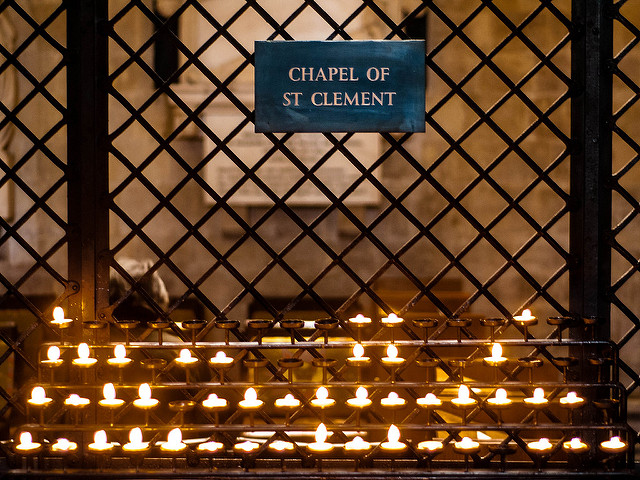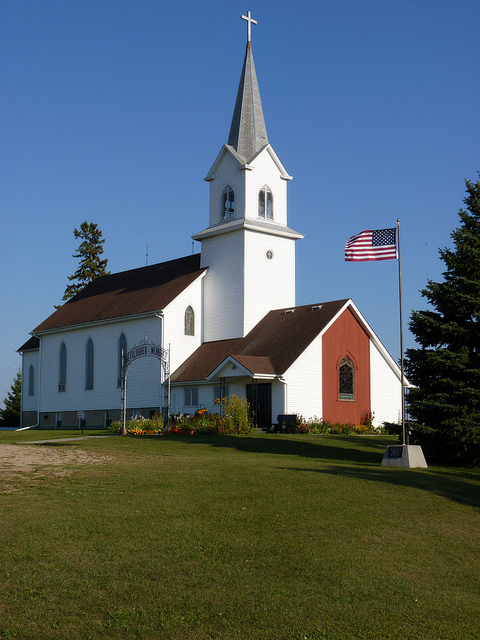Trump Woos Conservative Religious Leadership

By:
On Thursday, President Donald Trump symbolically empowered religious organizations to participate in politics and endorse candidates, without risk of suffering tax penalties or losing their tax-exempt status.
.jpg?auto=format&crop=faces&fit=crop&q=60&w=736&ixlib=js-1.1.0) Gage Skidmore - flickr.com
Gage Skidmore - flickr.com
The "Executive Order Promoting Free Speech and Religious Liberty" takes a direct swipe at the Johnson Amendment, a rule imposed in 1954 that restricts churches from participating in political activity. But while conservative religious groups have long opposed the Johnson Amendment, polling suggests that Democrats would potentially stand to benefit from the order.
A 2016 Pew survey found that Democratic-leaning religious institutions were more likely to endorse presidential candidates in the 2016 election. Only 14 percent of church goers included in the survey said their religious leaders specifically endorsed candidates, but here's where the support springs from:
"Among black Protestants who have been in church recently, roughly three-in-ten (29%) have heard clergy speak out in support of a candidate – mostly Hillary Clinton – and an equal share have heard religious leaders speak out against a candidate (primarily Donald Trump). Smaller shares of Catholic, white evangelical Protestant and white mainline Protestant churchgoers – roughly one-in-ten or fewer – say their clergy have publicly supported or opposed particular candidates."
 Neville Borg - flickr.com
Neville Borg - flickr.com
Under the order, the Department of the Treasury, which oversees the Internal Revenue Service (IRS), cannot "take any adverse action against any individual, house of worship, or other religious organization [that] speaks or has spoken about moral or political issues from a religious perspective." The order defines "adverse action" as the "imposition of any tax or tax penalty."
That said, the order goes on to say that such speech is only permissible if it has "not ordinarily been treated as participation or intervention in a political campaign on behalf of (or in opposition to) a candidate for public office" by the IRS.
What's the political calculus behind the order?
Critics have pointed out that the order could very well be more of a symbolic gesture meant to win over conservative religious leadership and also potentially test the waters for a full repeal of the Johnson Amendment in the future. Gregory Magarian, a law professor who specializes in free speech and religion at Washington University in St. Louis told ATTN:.
"It almost seems like [the order is] operating more as an admonition to resolve doubts about the proper boundaries of enforcement in favor of the religious institution," Magarian said. "Like, 'Don't come down on a church unless it's pretty clear that what the church has done violates conventional legal norms.'"
 Flickr/Marie Loughin - flic.kr
Flickr/Marie Loughin - flic.kr
"It's political effectiveness, to some extent, depends on how meaningful the symbol is to the intended audience," Magarian said. "I think we should assume that [organizations affected by the order are] no fools in this arena or discussion. They know the difference between symbolism and practical effect, but the symbolism might be worth a good deal to them."
After initially pledging to challenge the executive order in court, the ACLU said that it would not sue the Trump administration on Thursday because "it turned out the order signing was an elaborate photo-op with no discernible policy outcome."
"After careful review of the order’s text we have determined that the order does not meaningfully alter the ability of religious institutions or individuals to intervene in the political process," ACLU executive director Anthony Romero said in the statement. "The order portends but does not yet do harm to the provision of reproductive health services."
UPDATE 3:04 p.m. PST: This story has been updated to include a follow-up statement from the ACLU.
